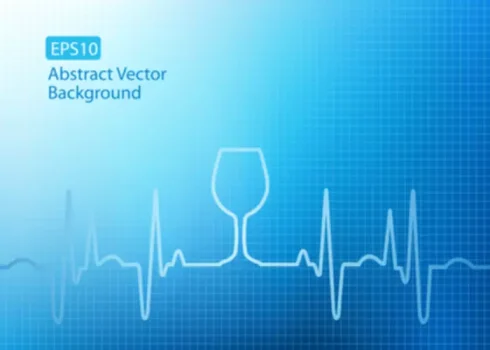Stages of Alcoholism Early to End-Stage Alcoholism Symptoms

It’s important for individuals struggling with alcoholism and mental health disorders like depression and anxiety to seek professional help. Treatment options may include therapy, medication, or a combination of both. By addressing both the physical and mental aspects of alcoholism, individuals can improve their overall well-being and start living a healthier life free from addiction. Fortunately, there are a number of treatment options available for individuals in the early stages of alcoholism. The most important thing is to seek help as soon as possible, before the disease has a chance to take hold and cause further damage to one’s health, relationships, and overall quality of life. Remember, it’s never too early to take control of your drinking and start living a healthier, happier life.
Save 10% on addiction treatment
By implementing these strategies and seeking ongoing support in recovery, individuals can reduce their risk of relapse and achieve long-term sobriety. It’s important to develop healthy coping mechanisms that can help manage these feelings without turning to drugs or alcohol. Some healthy coping mechanisms include exercise, meditation, therapy, or hobbies. The global impact of alcohol consumption is substantial, with the World Health Organization (WHO) identifying a range of individual and societal factors that contribute to alcohol-related harm. The WHO also emphasizes the importance of cost-effective interventions and policy actions to reduce the harmful use of alcohol. Speaking with a healthcare or mental health professional can be a positive first step.
Stage #5: Addiction and alcoholism
You may experience a pronounced loss of control over your drinking habits, meaning that you’re completely dependent on alcohol. The Recovery Village Cherry Hill at Cooper offers comprehensive addiction treatment for drug and alcohol addictions and co-occurring mental health conditions. Alcohol addiction can be difficult and potentially dangerous to recover from on your own. Severe alcohol withdrawal can be deadly, so heavy alcohol users should not attempt to wean off alcohol without the help of a professional medical detox facility.
- Many drinkers at this stage are more likely to drink and drive or experience legal troubles as a result of their drinking.
- This is especially true for teens who attend parties where drinking is the primary activity.
- It’s evident when someone is at the end-stages of their alcohol addiction.
- While the stages of alcoholism are important to understand, it is also crucial to recognize the underlying causes of this disease.
Get Help With Alcohol Addiction
They may also experience hallucinations and seizures related to withdrawal. Overall, a personalized approach that considers the individual’s unique needs, including any co-occurring disorders, is essential for effective alcohol addiction treatment. Continuous support and access to various treatment modalities can significantly improve outcomes for those struggling with alcoholism. The Recovery Village Atlanta offers comprehensive addiction treatment for drug and alcohol addictions and co-occurring mental health conditions.


Despite efforts to hide their addiction, their drinking problem is quite obvious to others. Work performance usually suffers at this stage, and impairment in the workplace is common. Middle-stage alcoholics may become irritable or angry if confronted about their drinking.

Rehabilitation programs, also known as rehab, provide a structured environment for individuals to address their alcohol addiction. These programs offer a combination of therapies, counseling, and education to help individuals overcome alcoholism and develop healthy coping mechanisms. These programs help individuals safely and comfortably withdraw from alcohol while managing potential withdrawal symptoms. Medical supervision and support are crucial during this stage to ensure safety and minimize discomfort. Seeking professional help and support is crucial for individuals in the late stage of alcoholism. Recovery is possible with the right treatment and resources, offering hope for a healthier and sober future.

- To determine whether or not you may be in the first stage of this model, answer the following questions.
- Doctors and other health professionals are encouraged to talk to their patients about drinking at every appointment.[11] You’re not required to wait for your doctor to bring it up.
- One of the biggest concerns with risky drinkers is when they don’t think they have a problem.
- Those who begin using alcohol as a tool someone uses to unwind after a long day, bolster themselves in social situations, or help them fall asleep progress into the next stage of alcoholism.
- The mental and physical health of alcoholics are rapidly deteriorating at this stage, and unless they seek alcohol rehab, they may drink themselves to death.
- AUD is unfortunately common, with 28.6 million U.S. adults being affected by AUD as of 2021.
Those who seek professional help for their alcohol addiction are more likely to achieve long-term sobriety than those who attempt to quit on their own. Professional treatment provides individuals with the skills and resources they need to manage triggers and cravings, develop healthy coping mechanisms, and rebuild their lives in recovery. Recent advancements in treatment also highlight the importance of addressing co-occurring mental health disorders. Individuals with alcohol addiction often have underlying psychiatric symptoms, which can be addressed through integrated treatment plans that focus on both substance use and mental health. End-stage alcoholism can also lead to profound cognitive impairments, affecting memory, attention, and decision-making abilities. These cognitive declines can drastically hinder daily functioning and diminish overall quality of life.
Making a stage 5: recovery
They may see them struggle with hallucinations or seizures related to withdrawal symptoms or suffer from liver damage or other serious health conditions. Professional treatment programs provide individuals with the tools and support they need to overcome their addiction and achieve long-term recovery. These programs are designed to address the physical and psychological aspects of alcohol addiction, as well as any underlying mental health issues that may contribute to the addiction. In middle-stage alcoholism, individuals have developed a physical dependence on alcohol.
Private outpatient treatment
There are numerous resources available, including helplines, treatment centers, and online support groups. By reaching out and taking advantage of these resources, individuals can embark on a journey towards a healthier and alcohol-free life. As alcoholism progresses, individuals may find themselves in the late stage of the addiction. At this point, alcohol has become a chronic addiction that has severe consequences and health risks. Understanding what makes someone addicted to alcohol can be the first step in helping a person seek treatment. Depending on how bad their alcohol abuse has been or if medically-assisted alcohol detox will be needed for withdrawal symptoms, entering into a treatment center may be a necessary option.
Intervention Help
You might notice it if they use it as their go-to way to unwind after a challenging day or long week. If they regularly rely on alcohol as a coping mechanism, can’t bear to face a social gathering without a drink, or need alcohol to relax, this could be a sign they’re in the pre-alcoholic stage. Seeking five stages of drinking treatment during the pre-alcoholic stage is possible but is highly unlikely. Supporting individuals in their recovery journey from alcoholism is vital for long-term success. Two critical aspects of this support are the importance of support systems and encouragement for treatment and rehabilitation.
